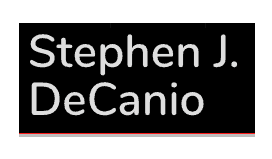30 Jun Carbon Rights and Economic Development: A Property Rights Approach
"Carbon Rights and Economic Development: A Property Rights Approach" Critical Review 6, 1992
Abstract
Even in the absence of complete scientific consensus on the magnitude, timing, and regional distribution of the effects of global warming caused by greenhouse gas emissions, it is worthwhile to examine potential policy responses to the prospect of climate change. An internalization of the greenhouse externality based on property rights in carbon emissions offers...

